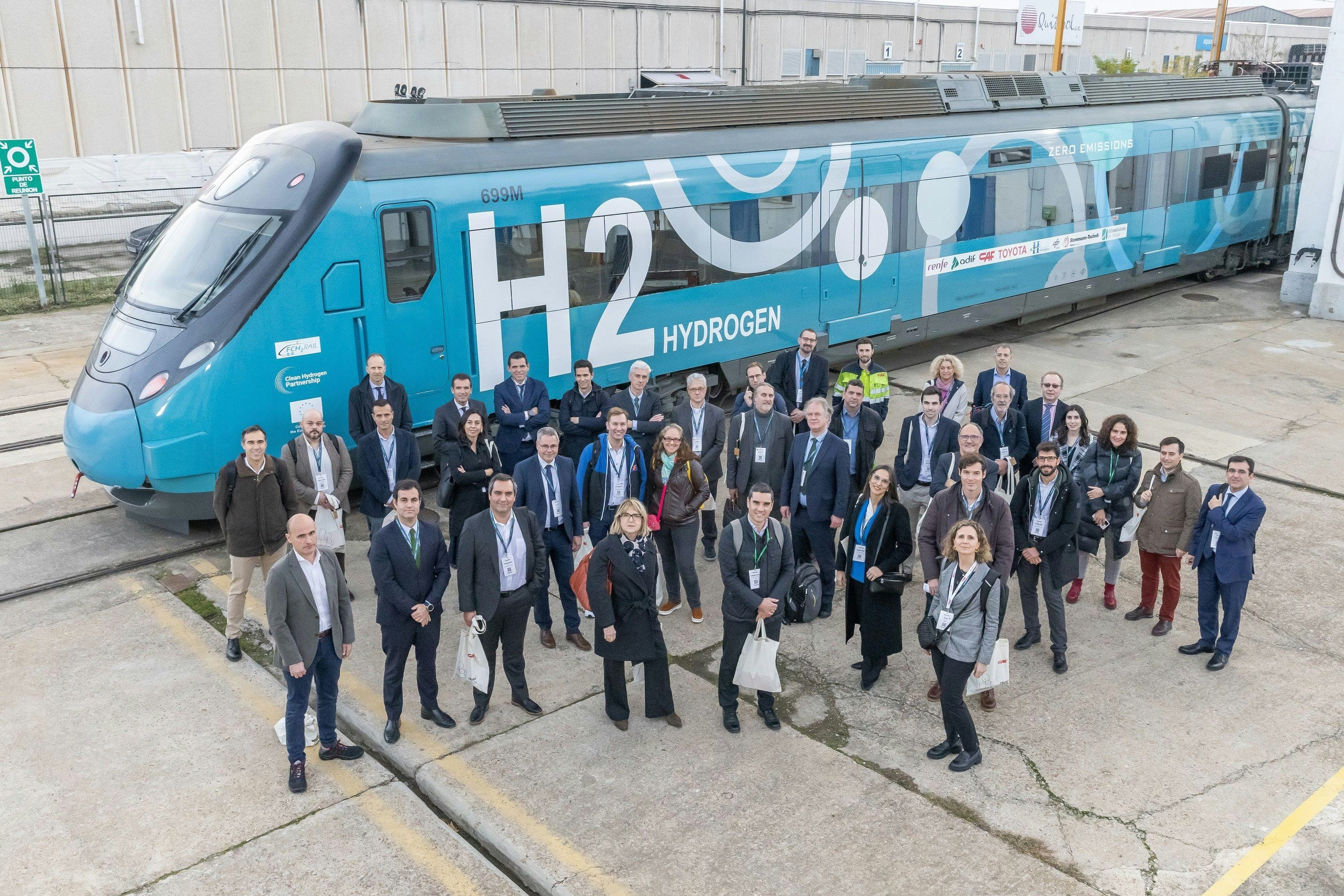AeroGenie — Tu copiloto inteligente.
Tendencias
Categories
Commission Proposes High-Speed Rail and Sustainable Fuels to Enhance Europe’s Competitiveness

Commission Proposes High-Speed Rail and Sustainable Fuels to Enhance Europe’s Competitiveness
The European Commission has introduced an ambitious transport package designed to accelerate the development of the continent’s high-speed rail network while significantly increasing investment in renewable and low-carbon fuels for the aviation and maritime sectors. This initiative aims to bolster the European Union’s competitiveness by promoting sustainability, efficiency, and enhanced connectivity across its transport infrastructure.
Advancing High-Speed Rail Connectivity
At the heart of the package lies the High-Speed Rail Action Plan, which sets forth a comprehensive strategy to establish a faster and more interoperable rail network across Europe by 2040. The plan envisions substantial reductions in travel times, such as shortening the journey between Berlin and Copenhagen from seven hours to four, and between Sofia and Athens from nearly fourteen hours to six. These improvements are intended to position rail travel as a viable and attractive alternative to short-haul flights. The plan also prioritizes the enhancement of cross-border routes, including the Paris–Lisbon corridor via Madrid and improved connections among the Baltic capitals.
To achieve these objectives, the Commission proposes four key measures. First, it aims to eliminate cross-border bottlenecks by setting binding deadlines for completion by 2027 and exploring the feasibility of increasing speeds beyond 250 km/h where possible. Second, it seeks to coordinate financing strategies through ongoing dialogue with member states, industry stakeholders, and financiers, with the goal of establishing a High-Speed Rail Deal to mobilize the necessary investments. Third, the plan focuses on improving industry conditions by encouraging innovation, simplifying regulatory frameworks, enhancing cross-border ticketing systems, supporting a secondary market for rolling stock, and accelerating the adoption of digital management technologies. Finally, the Commission intends to strengthen EU-level governance to ensure infrastructure managers collaborate effectively on cross-border capacity and standardization.
Beyond reducing travel times, the plan is expected to alleviate congestion, increase capacity for night trains and freight services, and enhance Europe’s tourism and industrial competitiveness. Nonetheless, challenges persist. Projects such as Rail Baltica have underscored the risks of cost overruns and the need to carefully balance speed with safety and long-term strategic planning. Investor confidence has also been tested by recent regulatory rollbacks, raising concerns about the EU’s commitment to sustainability and its potential impact on market trust.
Expanding Sustainable Fuels for Aviation and Shipping
The transport package also addresses the critical need to scale up investment in sustainable aviation fuels (SAF) and low-carbon alternatives for maritime transport. The aviation sector, in particular, faces increasing pressure to meet ambitious SAF targets amid growing air traffic volumes, highlighting the urgency for decisive EU action on the development of e-fuels and the implementation of effective taxation policies.
Europe’s reputation for sustainability is under close scrutiny, with market confidence hinging on the EU’s ability to maintain consistent and credible policies. At the same time, global competitors such as China are positioned to benefit from stringent EU CO2 emission regulations, especially within the electric vehicle market, potentially challenging Europe’s industrial leadership in these emerging sectors.
Outlook
The Commission’s transport package represents a significant and strategic effort to create a more sustainable and competitive European transport system. Its ultimate success will depend on effective implementation, sustained investment, and the EU’s capacity to uphold market confidence amid shifting regulatory and geopolitical dynamics.

Factors Positioning Airbus for Leadership in 2026

Emirates Unveils Cabin Design for New Boeing 777X

Eighteen Years On, the Airbus A380 Remains Central to a $34 Billion Airline

How a boom in luxury airline seats is slowing down jet deliveries

Navitaire Outage Attributed to Planned Maintenance

Airbus Plans Record Delivery of 870 Aircraft in 2026

DigiYatra Debuts Outside Aviation at India AI Impact Summit

Vietnam Orders Strengthen Boeing’s Commercial Outlook

Airbus Signals Uncertainty Over Future A400M Orders

JobsOhio Awards $2 Million Grant to Hartzell Propeller for Innovation Center
